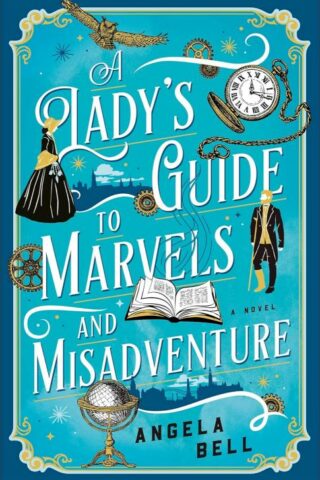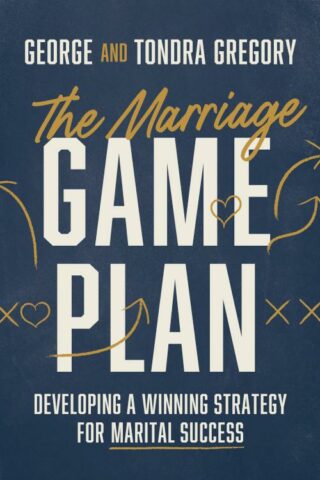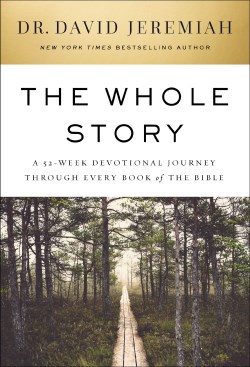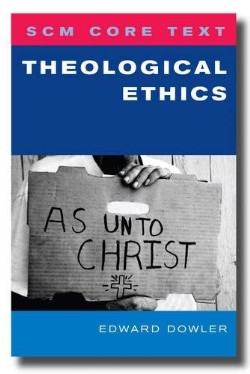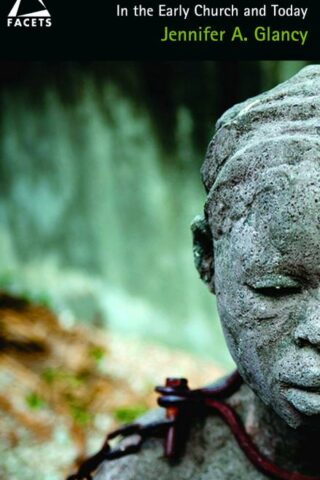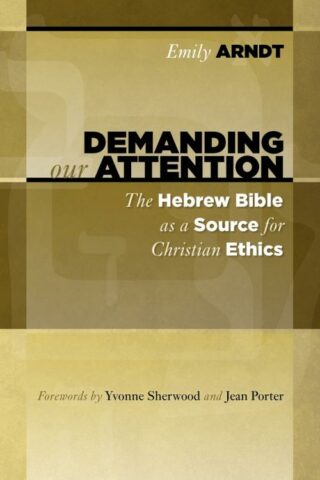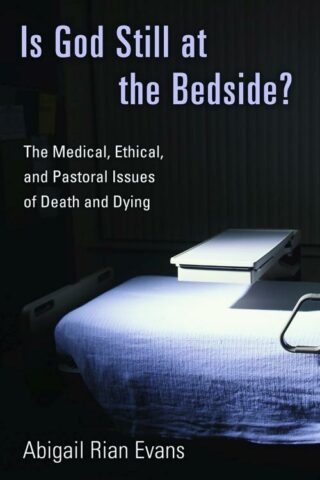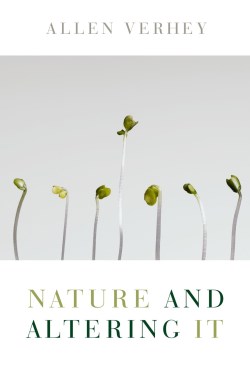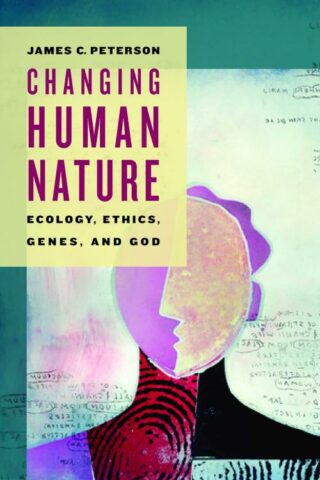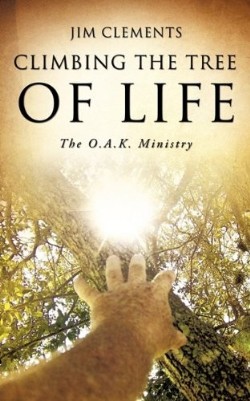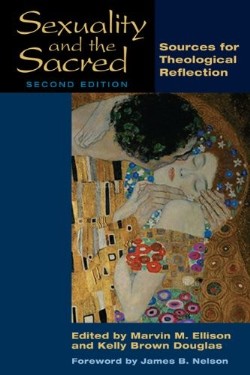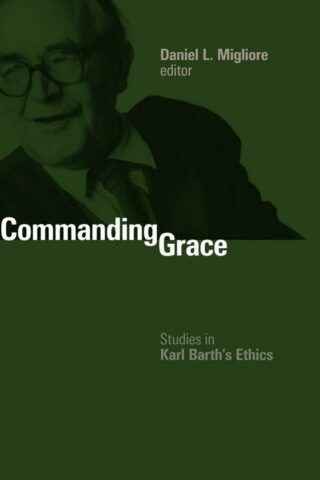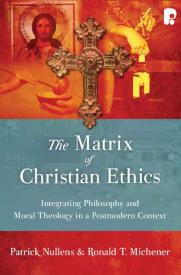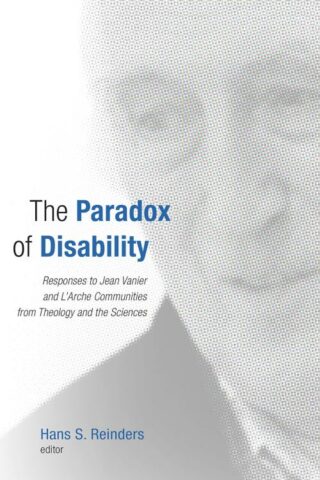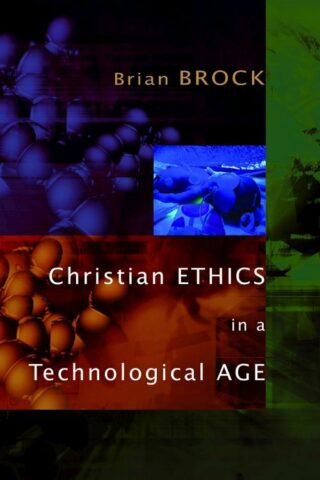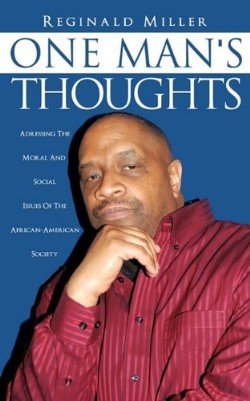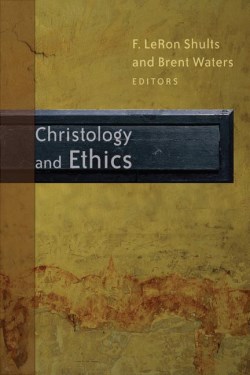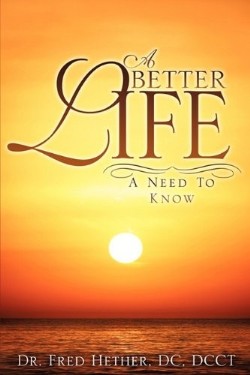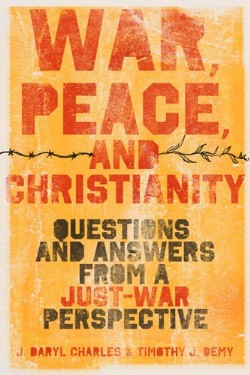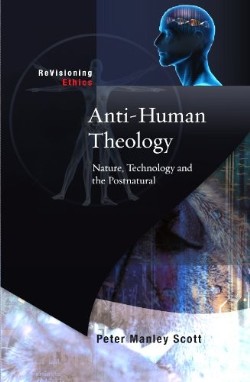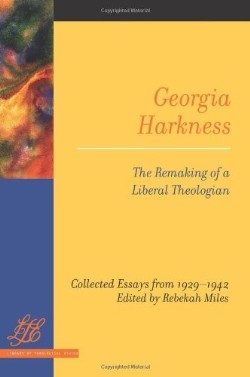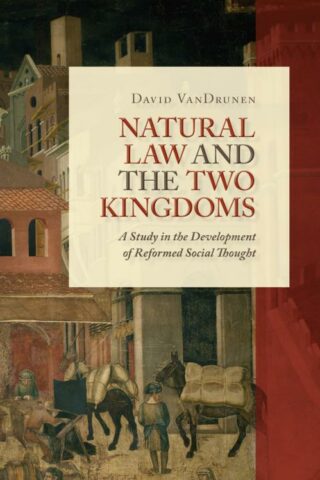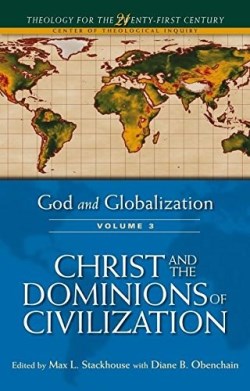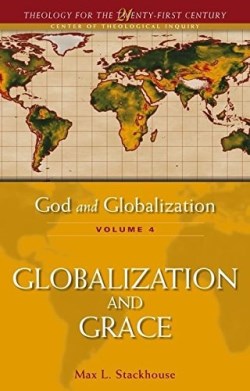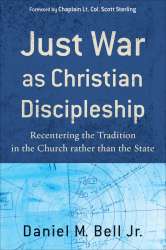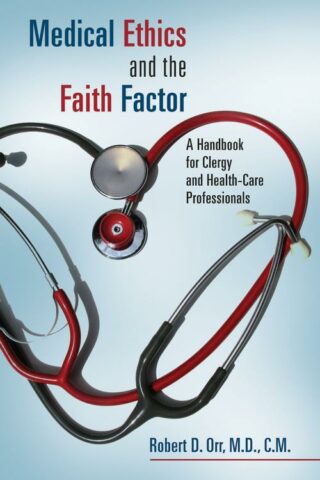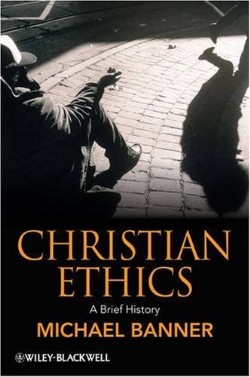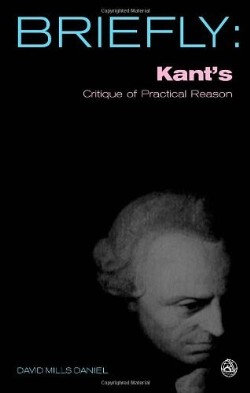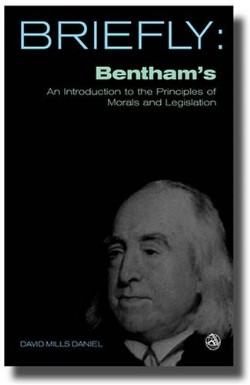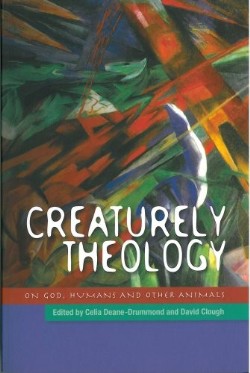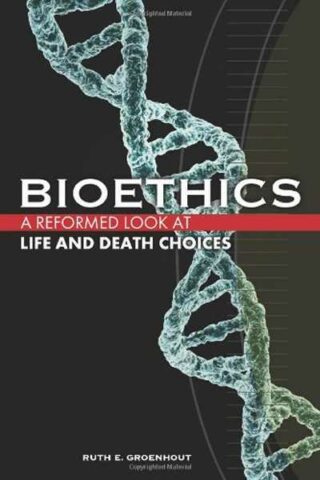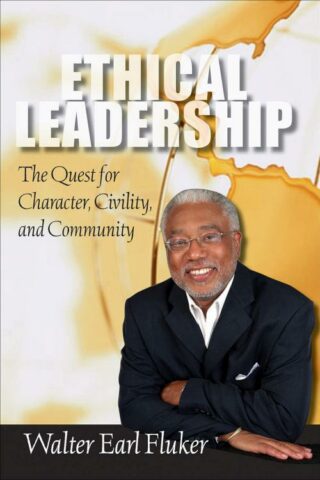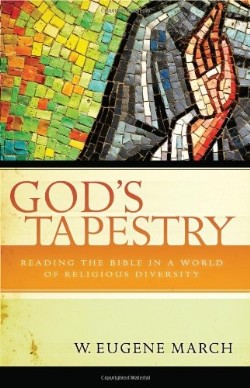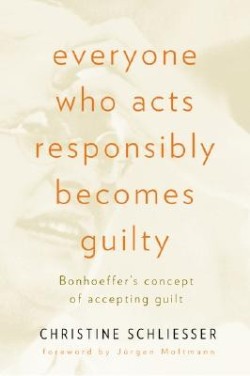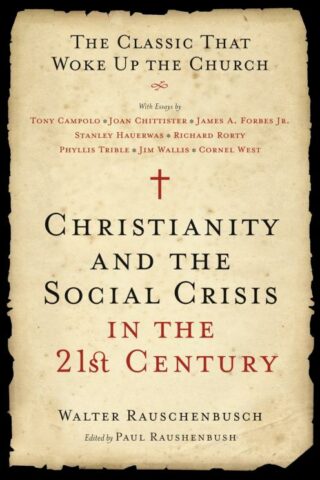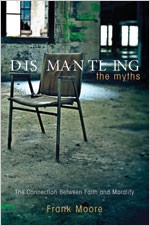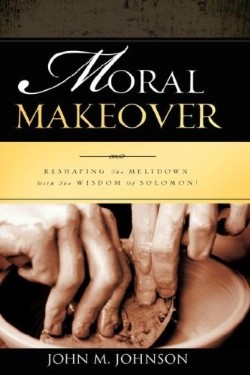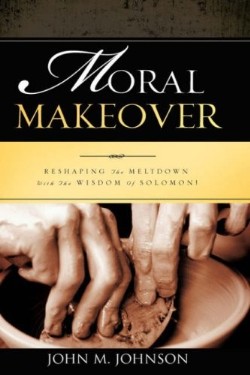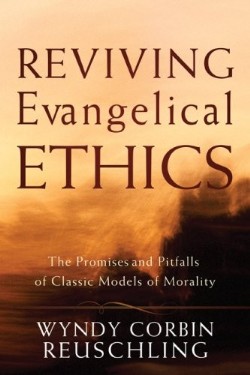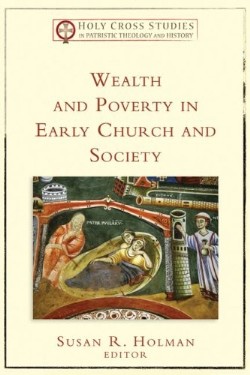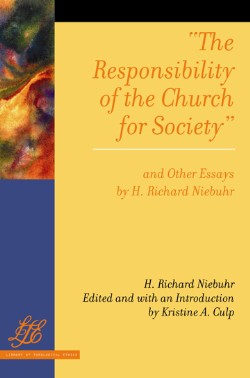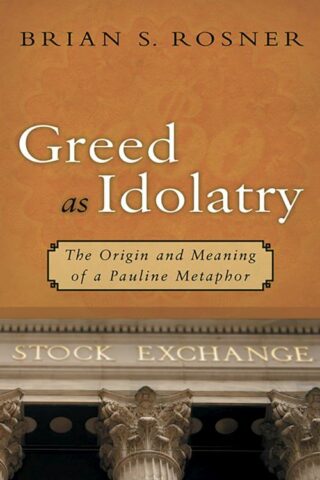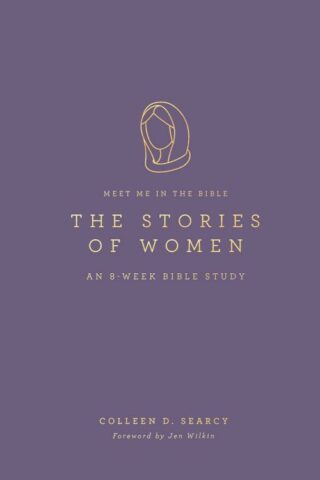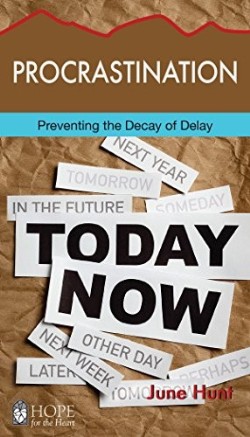Ethics
Showing 101–150 of 289 resultsSorted by latest
-
Theological Ethics
$44.99“The SCM Core Text “”Theological Ethics”” is intended for those studying Christian ethics at upper undergraduate level. The book offers a discussion of Christian moral thought in a variety of key areas. Many discussions of ethics start by considering particular issues. By contrast, this book gives a presentation of the patterns and traditions of thought that lie behind some of these discussions, in the hope that this will enable particular issues to be fully understood. The book begins by asking ‘What is Theological Ethics?’ and proceeds to introducing different approaches to Ethics, Ethics in the Catholic and Protestant traditions and subjects such as Sin, Grace and Free Will (Augustine), Natural Law and the Human Good (Thomas Aquinas), Virtue, Conscience and Love. Everyone studying theology, whether in a ministerial or a university context, has to study Ethics and this is an accessible and student-friendly textbook on the subject.”
Add to cartin stock within 3-5 days of online purchase
-
Pensamiento De C S Lewis – (Spanish)
$13.99C.S. Lewis was one of the intellectual giants of the twentieth century and arguably the most influential in Christian apologetics of today. Author Manfred Svensson attempts to help us get a better understanding of C.S. Lewis and discover aspects of his writings that we could not imagine.
Add to cartin stock within 3-5 days of online purchase
-
Slavery As Moral Problem
$23.33Introduction
1. Jesus And Slavery
2. The First Christian Slaveholders
3. Slaves In The Household Of God
4. Slavery In A Christian EmpireEpilogue
Further Reading
NotesAdditional Info
Recent US and UN reports document the startling incidence of human trafficking in the world today. Yet the situation is hardly new.The fact that some early Christians were slaves does not present a moral problem for Christians today. The fact that some early Christians were slaveholders does. Jennifer Glancy tackles questions that continue to haunt contemporary men and women, inside and outside of the churches: Why didn’t Jesus speak out forcefully against slavery? Why didn’t the early church see slavery as fundamentally incompatible with the gospel? Were there any bright moments when some Christians in fact drew that conclusion, and why don’t we know more about them? Why didn’t Christianity have more of an impact on slaveholding in the Roman Empire? And what lessons can we learn as we face moral catastrophes in our own day?
Though chapters discuss slavery in the first centuries of the church, Glancy’s focus is on the question of moral imagination: What does it take for people to take a clear stand against entrenched and accepted wrong? In an age when debt bondage, child labor, sex slavery, and human trafficking are increasing and increasingly integrated into economic globalization, what should our response be? And do early Christian writings provide any help at all?
Add to cartin stock within 3-5 days of online purchase
-
Demanding Our Attention
$33.99Ethical lessons drawn from a challenging ancient narrative
What can we possibly learn about our relationships to others from reading a story about an ancient father who raised a knife to slaughter his beloved only son?
Contemporary Christian ethicists, faced with such dilemmas, are often tempted to treat the Hebrew Bible in a limited, distanced, and even dismissive way. Yet Emily Arndt here argues that those ancient scriptures can be a vital resource for Christian ethical studies. She focuses on a close analysis of the akedah – the story of Abraham’s near-sacrifice of Isaac – to demonstrate the power of even the most troubling and uncomfortable Old Testament narratives to teach valuable lessons and develop in us the disposition and skills we need to relate authentically and ethically to others.
Add to cartin stock within 3-5 days of online purchase
-
Is God Still At The Bedside
$42.99Offering an expert interdisciplinary Christian perspective on difficult end-of-life decisions, Abigail Rian Evans examines the complex web of medical, ethical, theological, pastoral, and legal issues surrounding death and dying. Her Negotiated Death is informed by insights from dying patients, their families, their health-care and hospice staff, and members of the clergy, resulting in a book that will help families struggling with end-of-life decisions and will also comprehensively inform the doctors, nurses, and pastors who minister to them.
Add to cartin stock within 3-5 days of online purchase
-
Nature And Altering It
$21.99It is true – and troubling – that we humans are increasingly able to control and manipulate nature in many ways. In this book ethicist Allen Verhey addresses that reality and shows why we need to bring a fresh Christian voice into today’s ecological debate.
Verhey identifies and describes the significant cultural “myths” or “narratives” that have shaped Western perspectives on nature and on altering it. In the biblical narrative he finds an alternative story that challenges the dominant myths of Western culture. Acknowledging that Christian Scripture has often been accused of nurturing arrogance toward nature, Verhey looks anew at the biblical narrative in a way that moves beyond those accusations.
The genius of this little book is how it deftly unpacks underlying human narratives and shows the relevance of the Christian narrative for contemporary ecological ethics.
Add to cartin stock within 3-5 days of online purchase
-
Changing Human Nature
$29.99How would God have us respond to the brave new world of genetic engineering? In Changing Human Nature James Peterson offers an informed Christian defense of genetic intervention.
Given that the material world and human beings are constantly changing, says Peterson, the question is not if there will be change but whether we will be conscious and conscientious about its direction. Part of our God-given calling, he maintains, is to positively shape our environment and ourselves, including our genes.
While carefully addressing legitimate religious concerns, Peterson’s theologically grounded yet jargon-free discussion puts forth clear and specific guidelines for proper genetic intervention. Distinctive for its integrated, nuanced approach, Changing Human Nature will fill the need for a thoughtful, positive Christian perspective on this timely topic.
Add to cartin stock within 3-5 days of online purchase
-
Climbing The Tree Of Life
$19.98“Climbing the Tree of Life, The O.A.K. Ministry” uses original poetry, famous quotations, God’s word, and personal witness to show the extraordinary hand of God in the ordinary life of the author. The book was written as a way to encourage a ministry of love through offering acts of kindness. It is the hope of the author that the truths found within this book will be life-changing to the reader and trend-changing for the world as this ministry grows.
“The O.A.K. Ministry was born one day when God showed me a simple truth through an act of kindness on the side of a road. Since then, it has become my mission to share that truth with as many as I can. My means were limited but God’s are not. He gave me the ability to string a few words together and create poetry. From that poetry the idea of writing this book was created.” -Jim Clements
Add to cartin stock within 3-5 days of online purchase
-
Sexuality And The Sacred (Expanded)
$55.00Christian discourse on sexuality, spirituality, and ethics has continued to evolve since this book’s first edition was published in 1994. This updated and expanded anthology featuring more than thirty contemporary essays includes more theologians and ethicists of color and addresses issues such as the intersection of race/racism and sexuality, transgender identity, same-sex marriage, and reproductive health and justice.
Add to cartin stock within 3-5 days of online purchase
-
Dont Give Up The Palace For A Night
$34.98The secular world has been on the fast track to lawlessness for decades and unfortunately Christians have been running neck and neck alongside it. Sexual immorality is endemic, while alternative lifestyles ebb from subculture into the mainstream. Don’t Give Up the Palace for a Night, The Down Low on Fornication in the Church is one of the most passionate and poignant exposes of our time about sex and promiscuity among Christian singles in the church.
Don’t Give Up the Palace for a Night is as real as it gets. The book is raw, in-your-face candid, as it gets into “real talk” discussions about why premarital sex is the lifestyle of choice for scores of Christian singles and what the Bible has to say about it. It dares to tread where other Christian books do not as it talks about Christians without ethics-fornicating pastors preaching in the pulpit; sexually promiscuous men and women singing in the choir. The book explores the emotional profile of an intruder-the single woman in the church who becomes sexually involved with a married man in the church. El discusses why it is important that Christians be equally yoked; finding Mr. and Mrs. Right; and why women bond to men after sexual intercourse.
If you, or someone you know, have been praying and looking for a compelling and life-changing word, look no further, Don’t Give Up the Palace for a Night, The Down Low on Fornication in the Church is God’s answer to your prayers.
Add to cartin stock within 3-5 days of online purchase
-
Dont Give Up The Palace For A Night
$22.48The secular world has been on the fast track to lawlessness for decades and unfortunately Christians have been running neck and neck alongside it. Sexual immorality is endemic, while alternative lifestyles ebb from subculture into the mainstream. Don’t Give Up the Palace for a Night, The Down Low on Fornication in the Church is one of the most passionate and poignant exposes of our time about sex and promiscuity among Christian singles in the church.
Don’t Give Up the Palace for a Night is as real as it gets. The book is raw, in-your-face candid, as it gets into “real talk” discussions about why premarital sex is the lifestyle of choice for scores of Christian singles and what the Bible has to say about it. It dares to tread where other Christian books do not as it talks about Christians without ethics-fornicating pastors preaching in the pulpit; sexually promiscuous men and women singing in the choir. The book explores the emotional profile of an intruder-the single woman in the church who becomes sexually involved with a married man in the church. El discusses why it is important that Christians be equally yoked; finding Mr. and Mrs. Right; and why women bond to men after sexual intercourse.
If you, or someone you know, have been praying and looking for a compelling and life-changing word, look no further, Don’t Give Up the Palace for a Night, The Down Low on Fornication in the Church is God’s answer to your prayers.
Add to cartin stock within 3-5 days of online purchase
-
Word In Due Season
$33.11A wise man once said a word fitly spoken is like apples of gold in a setting of silver (Proverbs 25:11). Wrong words spoken at wrong times can hinder the deliverance or blessing the Lord is planning to bring forth in the lives of His children. That’s why Dr. Joy Marie Dixon penned this book that helps readers to recognize the prophetic moments in their lives and allow God to work through them.
Add to cartin stock within 3-5 days of online purchase
-
Commanding Grace : Studies In Karl Barths Ethics
$33.99In this seminal volume, contemporary theologians revisit the theological ethics of Karl Barth as it bears on such topics as the moral significance of Jesus Christ, the Christian as ethical agent, the just war theory, the relationship between doctrines of the atonement and modern penal justice systems, the virtues and limits of democracy, and the difference between an economy of competition and possession and an economy of grace.
Add to cartin stock within 3-5 days of online purchase
-
Matrix Of Christian Ethics
$33.99In today’s world, many Christians don’t know how to live ethically, let alone know what ethics is. Christian ethics probes our deepest sensibilities as humans and how we seek the good for others as well as for ourselves as followers of Christ. This book begins to delve into this relevant and contemporary subject through methodological reflection on the commands, purposes, values, and virtues of Christian life in today’s context.
To address these factors, an integrative approach to ethics is proposed, borrowing from classical ethical models such as consequential ethics, principle ethics, virtue ethics, and value ethics. This is what the authors call a matrix of Christian ethics. This matrix will be played out in a variety of ways throughout the book, from the discussion of the postmodern situation of ethics and values to current proposals for the ongoing development of Christian ethics today. It concludes with some practically oriented guidelines to help the reader consider contemporary ethical questions and conflicts within a framework of biblical wisdom, in view of the ongoing work of the Holy Spirit in the lives of followers of Christ.
Add to cartin stock within 3-5 days of online purchase
-
Paradox Of Disability
$24.99The village of Trosly-Breuil in northern France is home to one of the world’s thirty-four L’Arche communities, where people with and without intellectual disabilities live and work together. In 2007 an impressive assortment of social scientists and theologians gathered there to offer responses to a question posed by the worldwide community’s cofounder, Jean Vanier: “What have people with disabilities taught me?” Their answers are here presented in a diverse collection of essays.
Editor Hans Reinders emphasizes that these analyses and reflections – like the L’Arche communities that inspired them – are not meant to set apart those with disabilities. Rather, they encourage people of all abilities humbly to acknowledge that to be human is to live with brokenness and limitation – and that to experience true community we must first learn to receive other people as God’s gift.
Add to cartin stock within 3-5 days of online purchase
-
Christian Ethics In A Technological Age
$40.99Through close analysis of the historical and conceptual roots of modern science and technology, Brian Brock here develops a theological ethic addressing a wide range of contemporary perplexities about the moral challenges raised by new technology.
Part I lays the groundwork for theological analysis by tracing “secular” philosophical accounts of modern technology’s shape, origins, meanings, and ethical implications, looking specifically at Martin Heidegger and two of his interpreters, George Grant and Michael Foucault. Part II develops an account of faith’s seeking to hear the claim of Christ amid technological life. Viewing technology as a human mode of thought that comes to approach all things and relationships as susceptible to human ordering and management, Brock explores how faith opens up trajectories for new ways of living with others elided by technological rationality.
Add to cartin stock within 3-5 days of online purchase
-
1 Mans Thougths
$16.86Have you ever wondered what happened to the African American society, why are we so different from long ago and then again why haven’t we changed.
One Man’s Thoughts is a thought provoking piece that reflect the thoughts of one Black man whose words of inspiration and encouragement may very well be just what the African American society needs to read.
Add to cartin stock within 3-5 days of online purchase
-
Christology And Ethics
$31.99This book brings together leading theologians and ethicists to explore the neglected relationship between Christology and ethics. The contributors to this volume work to overcome the tendency toward disciplinary xenophobia, considering such questions as these:
What is the relation between faithful teaching about the reality of Christ and teaching faithfulness to the way of Christ?
How is christological doctrine related to theological judgments about normative human agency?
With renewed attention and creative reformulation, they argue, we can discover fresh ways of tending to these perennial questions.Add to cartin stock within 3-5 days of online purchase
-
Better Life : A Need To Know
$28.73Anyone who wants to have loving and fulfilling relationships can learn some key principles by reading this book. Relationships can become anything you desire. Your thoughts, actions, and words will affect those around you. This can be for the positive or the negative. We all have a choice. Gain insight into these key factors and enjoy your future relationships.
Add to cartin stock within 3-5 days of online purchase
-
War Peace And Christianity
$27.99The authors speak from a just-war moral perspective to provide Christians with expert and accessible answers to more than one hundred common questions concerning the ethics of war. With issues of war and peace at the forefront of current events, an informed Christian response is needed. This timely volume answers 105 questions from a just-war perspective, offering thoughtful yet succinct answers. Ranging from the theoretical to the practical, the volume looks at how the just-war perspective relates to the philosopher, historian, statesman, theologian, combatant, and individual-with particular emphases on its historical development and application to contemporary geopolitical challenges. Forgoing ideological extremes, Charles and Demy give much attention to the biblical teaching on the subject as they provide moral guidance. A valuable resource for considering the ethical issues relating to war, Christians will find this book’s user-friendly format a helpful starting point for discussion.
Add to cartin stock within 3-5 days of online purchase
-
For The Beauty Of The Earth
$40.00Caring for the environment is a growing interest among evangelicals. This award-winning book provides the most thorough evangelical treatment available on a theology of creation care. “Authentic Christian faith requires ecological obedience,” writes Steven Bouma-Prediger. He urges Christians to acknowledge their responsibility and privilege as stewards of the earth. The second edition has been substantially revised and updated with the latest scientific and environmental research.
Add to cartin stock within 3-5 days of online purchase
-
Anti Human Theology
$104.00Peter Manley Scott offers a theological and ethical reading of our present situation. Due to the vigour of its re-engineering of the world by its technologies, western society has entered into a postnatural condition in which standard divisions between the natural and the artificial are no longer convincing. This postnatural development is liberating – both theologically and politically. Scott develops an ‘anthropology’ that does not repeat Christianity’s history of anthropocentrism but instead criticises it by exploring the mutual entanglement of animals, humans and other creatures. Deeply disrespectful of traditional centres of power, his ethical critiques of ‘pioneering’ technologies expose their anti-social and anti-ecological tendencies and identify possible paths of oppositional political action. This is ethical theology at its best: deeply informed by theological tradition, immersed in contemporary political-technological problematics in radically oppositional ways, and yet fiercely hopeful of a good outcome for anim
Add to cartin stock within 3-5 days of online purchase
-
Georgia Harkness : The Remaking Of A Liberal Theologian
$40.00Georgia Harkness (1891-1974) was a Methodist theologian and the first American woman to teach theology at the seminary level. A leader in the ecumenical movement, Harkness strove to make theology accessible to the laity.
This book is a compilation of writing from early in her career that appeared in publications such as The Christian Century, Religion in Life, and Christendom. Although her theology shifted somewhat during these years, Harkness held fast to her belief that liberal theology would remain “the basic American theology,” a prediction that was out of step in the 1930s but is growing more credible today.Add to cartin stock within 3-5 days of online purchase
-
Natural Law And The Two Kingdoms
$44.99Conventional wisdom holds that the theology and social ethics of the Reformed tradition stand at odds with concepts of natural law and the two kingdoms. This volume challenges that conventional wisdom through a study of Reformed social thought from the Reformation to the present.
David VanDrunen begins by exploring the early development of Reformed thought in its first few centuries on the continent, in Britain, and in America. He argues that natural law and the two kingdoms were common themes in this early theology. In fact, he says, these ideas were embedded in crucial anthropological, christological, and ecclesiological doctrines, shaping convictions about the state, civil rebellion, and the role of the church in broader social life.VanDrunen then turns to more recent thinkers of the Reformed tradition – Abraham Kuyper, Karl Barth, Herman Dooyeweerd, and Cornelius Van Til – tracing how each contributed in his own way to the decline of these doctrines in Reformed theology and social ethics. Finally, he reflects on recent signs of renewed interest in natural law and the two kingdoms, suggesting how their recovery is a hopeful sign for the Reformed tradition.
“The strength of this book is the overwhelming amount of historical evidence, judiciously analyzed and assessed, that positions the Reformed tradition clearly in the natural law, two kingdoms camp. This valuable contribution to our understanding of the Christian life cannot and should not be ignored or overlooked. The growing acceptance of the social gospel among evangelicals puts us in jeopardy of losing the gospel itself; the hostility to natural law and concomitant love affair with messianic ethics opens us up to tyranny. This is a much needed and indispensable ally in the battle for the life of the Christian community in North America.” / – John Bolt / Calvin Theological Seminary
Add to cartin stock within 3-5 days of online purchase
-
Climate Justice : Ethics Energy And Public Policy
$33.33Energy issues and climate change have loomed up from issues at the horizon to confront humanity directly and vitally. They are now pressing public-policy challenges of monumental scale and import. James Martin-Schramm draws on decades of involvement with ethics, public policy, and environmental ethics to provide this lucid and astute analysis of the problems and options for addressing energy and climate change.
Schramm argues that reliance on fossil fuels has produced grave threats to justice, peace, and the integrity of creation. Addressing these threats requires of Christians not simply new individual sensitivities and sacrifices but a new way of living in harmony with the earth and an earnest search for policy that fosters sustainability, reflects values of equity and fairness, and operates on a scale commensurate with the problems. Martin-Schramm proposes a full analysis of the problems and causes of our situation and real principles for an ethic of ecojustice. He also provides specific assessment of norms, policy options, and recommendations in the areas of energy and climate change and a glimpse of what a workable alternative might look like, globally and locally.
Add to cartin stock within 3-5 days of online purchase
-
God And Globalization Volume 3
$71.58T And T Clark International Title
These volumes examine both the promise and the threat of globalization using the tools of theological ethics to understand and evaluate the social contexts of life at the deepest moral and spiritual levels.
Add to cartin stock within 3-5 days of online purchase
-
God And Globalization Volume 4
$71.58T And T Clark International Title
This final interpretive volume of the God and Globalization series argues for a view of Christian theology that, in critical dialogue with other world religions and philosophies, is able to engage the new world situation, play a critical role in reforming the “powers” that are becoming more diverse and autonomous, and generate a social ethic for the 21st century.
Add to cartin stock within 3-5 days of online purchase
-
Just War As Christian Discipleship
$37.50This provocative and timely primer on the just war tradition connects just war to the concrete practices and challenges of the Christian life. Daniel Bell explains that the point is not simply to know the just war tradition but to live it even in the face of the tremendous difficulties associated with war. He shows how just war practice, if it is to be understood as a faithful form of Christian discipleship, must be rooted in and shaped by the fundamental convictions and confessions of the faith. The book includes a foreword by an Army chaplain who has served in Iraq and study questions for group use.
Add to cartin stock within 3-5 days of online purchase
-
Medical Ethics And The Faith Factor
$47.99Medical Ethics and the Faith Factor is a reference book that promises to be a very useful resource for health care professionals, chaplains, pastors, priests, rabbis, and other people of faith who frequently interact with individuals and families facing illness and disability.
Robert Orr brings to the table the accumulated knowledge of four decades in the medical field, many of which he spent dealing with clinical ethics. However, unlike many books on medical ethics, this isn’t simply a platform to convince us that Orr’s opinion is fact. Instead, it is a reality check replete with real case studies that reintroduce the human element to a discussion so often detached from the very people it claims to concern.
In part 1 Orr explains the ethical and theological foundations of contemporary clinical ethics. Parts 2, 3, and 4 focus on specific ethical dilemmas. Here Orr tackles such questions as What management options are available when the family of a patient who is brain dead is unwilling to accept the diagnosis? Is a feeding tube ethically obligatory for a patient with advanced dementia? Is it ethically permissible to continue to prescribe narcotics for a patient who admits to their misuse? Should we provide organ transplantation for an undocumented foreign national?
Finally, part 5 explores ways that family members, clergy, counselors, and friends can assist patients and families as they struggle with these difficult decisions, emphasizing the priesthood of believers and the importance of prayer for God’s wisdom and peace.
Medical Ethics and the Faith Factor is a timely entry into a growing ethical discussion. Readers of this book will come away with a greater familiarity with clinical issues, a recognition of the moral questions raised by those issues – including those of religion and culture – and the ability to render more thoughtful assistance to patients and families struggling to find answers.
Add to cartin stock within 3-5 days of online purchase
-
Puzzle Of Sex
$25.00Almost everyone is directly affected by questions involving sex and sexual ethics – yet few are aware of the background to current views on topics such as sex before and after marriage, sex as procreation and fulfilment, homosexuality, sexual abuse, rape and contraception. This new edition offers added and up-to-date material discussion burning current issues in a thoughtful, reflective and challenging way.
Add to cartin stock within 3-5 days of online purchase
-
Christian Ethics : A Brief History
$63.25From questions about the status of early Christians who renounced theri religion under Roman torture, through to current debates about euthanasia, Christianity has always had to grapple with complex moral problems. Michael Banner steers readers through these issues, providing a clear and decisive history of the main figures and texts in Christian ethics and considers the contribution that Christian ethics can make to contemporary moral debates.
Add to cartin stock within 3-5 days of online purchase
-
Kants Critique Of Practical Reason
$15.00Kant’s Critique of Practical Reason (1788) is one of his most important works and a key text to understanding Kant’s philosophy and it the impact it had on later developments of moral philosophy and ethics.
Add to cartin stock within 3-5 days of online purchase
-
Benthams An Introduction To The Principles Of Morals And Legislation
$15.00In the Introduction to the Principles of Morals and Legislation (1789), Bentham strove to cut a new road through the wilds of jurisprudence. Laws should be socially useful and not merely reflect the status quo; and, that while he believed that human beings inevitably pursue pleasure and avoid pain, Bentham thought it to be a sacred truth that the greatest happiness of the greatest number is the foundation of morals and legislation.
Add to cartin stock within 3-5 days of online purchase
-
Fletchers Situation Ethics
$15.00This book discusses Fletcher’s situation ethics which basically states that sometimes other moral principles can be cast aside in certain situations if love is best served. It is one of the main ethical theories studied in all introductory courses on Christian ethics.
Add to cartin stock within 3-5 days of online purchase
-
Creaturely Theology : God Humans And Other Animals
$52.99Creaturely Theology is a ground-breaking scholarly collection of essays that maps out the agenda for the future study of the theology of the non-human and the post-human. A wide range of first-rate contributors show that theological reflection on non-human animals and related issues are an important though hitherto neglected part of the agenda of Christian theology and related disciplines. The book offers a genuine interdisciplinary conversation between theologians, philosophers and scientists and will be a standard text on the theology of non-human animals for years to come. Contributors include: Esther D. Reed (Exeter), Rachel Muers (Leeds), Stephen Clark (Liverpool), Neil Messer (Lampeter), Peter Scott (Manchester), Michael Northcott (Edinburgh), Christopher Southgate (Exeter)
Add to cartin stock within 3-5 days of online purchase
-
Bioethics
$20.00Bioethics helps Christians develop a biblical perspective on complex and controversial issues such as abortion, assisted reproduction, euthanasia, stem cell research, and genetic manipulation. It also encourages a compassionate Christian response to global health crises.
Discussions of life and death choices raise difficult questions:
How should Christians understand complex and controversial issues such as abortion, assisted reproduction, euthanasia, stem cell research, and genetic manipulation?
How do we respond to global health crises, or to chronic illness and suffering?
What is the biblical vision for life-and how should we go about voicing it?
This new book helps Christians develop a biblical understanding of bioethics and challenges us to apply that understanding to difficult issues. Discussion questions in each chapter make this book an excellent choice for group study or personal reflection.
Add to cartin stock within 3-5 days of online purchase
-
Ethical Leadership : The Quest For Character Civility And Community
$48.33We live in a leadership crisis. “In an age when incompatible worlds collide and when scandals rock formerly stable institutions,” says Walter Fluker, “what counts most is ethical leadership and the qualities of personal integrity, spiritual discipline, intellectual openness, and moral anchoring.” Fluker finds these characteristics exemplified in the work and thought of black-church giants Martin Luther King Jr. and Howard Thurman.
This volume, for leaders and emergent leaders in religious and other settings, sets forth the context and principles for ethical leadership, particularly for ministries and other professions whose mission directly advances the common good. Fluker’s volume grounds leadership in story, the appropriation of one’s roots, as a basis for personal and social transformation. He then explores the key values of character, civility, and community for ethical action on the personal, public, and spiritual realms. From these considerations he develops a model of the specific virtues that embody each realm of ethical leadership before applying them to the practical aspects of leadership and decisionmaking.
Add to cartin stock within 3-5 days of online purchase
-
Gods Tapestry : Reading The Bible In A World Of Religious Diversity (Student/Stu
$19.00In this engaging book aimed at pastors, teachers, and laypeople in Christian churches, author and Old Testament scholar Gene March helps the reader develop theological clarity about how to live in a religiously diverse society, by delving into specific biblical texts in ways that correct misinterpretations and long-held misunderstandings.
Includes study questions for discussion.Add to cartin stock within 3-5 days of online purchase
-
Everyone Who Acts Responsibly Becomes Guilty
$42.00Everyone who acts responsibly becomes guilty was a basic premise that Dietrich Bonhoeffer expressed in various ways in his theology and ethics. Even Bonhoeffers own actionsin praying for the defeat of his country in World War II and in participating in a plot to assassinate Hitlerdemonstrate the tension between the reality of guilt and Bonhoeffers ethical decisions. In this study, Christine Schliesser examines the problem of guilt in Bonhoeffers writings, arguing that the concept of accepting guilt emerges from Bonhoeffers understanding of Christology. Since Jesus Christ has accepted the guilt of humankind, so the disciple must also be willing to accept guilt for the sake of the other. In addition, Schliesser reveals the unresolved tensions that emerge in the concept of accepting guilt and discusses the extent to which Bonhoeffers concept is still relevant to Christian ethics today.
Add to cartin stock within 3-5 days of online purchase
-
God As Poet Of The World
$50.00Process theology has been a major theological innovation of the last hundred years, and its influence on American theology has been pervasive. But process thought is far from being simply an American phenomenon. Throughout the last few decades, some of the most exciting work in process theology has been undertaken in Asia and Europe. Now that process theology is a truly international movement, all theologians need to reconsider this school of thought. In this book, world-recognized expert in process thought Roland Faber presents a systematic exploration of process theologys roots and development, its chief concerns and concepts, and its opportunities for new contributions to todays theological scene. This book is a superb resource for those who want to know more about this important theological movement.
Add to cartin stock within 3-5 days of online purchase
-
Christianity And The Social Crisis In The 21st Century
$17.99First published in 1907, this book became the mainstay for Christians and other religious people seriously interested in social justice. New essays by leading public theologians are included in this modern edition.
Add to cartin stock within 3-5 days of online purchase
-
Bioetica Cristiana – (Spanish)
$23.99Ethics applied to biology looks for respect for life. The great scientific discoveries lead us to ask the following question – are we able to apply everything scientifically? Biology and theology join together in favor of human dignity.
Add to cartin stock within 3-5 days of online purchase
-
Dismantling The Myths (Revised)
$16.991. Getting Started: Setting The Stage
2. Say ‘Cheese’: Snapshots From Our Culture
3. A Penny For Your Thoughts: The Way We Think Becomes The Way We Live
4. On Guard: Preparing For The Culture Battle
5. Here We Stand: What Christians Believe About Making Moral Choices
6. A Lamp And A Light: What The Bible Teaches About Making Moral Choices
7. Line ’em Up: Part 1: Strategies For Lining Up Your Personal Life With Your Faith
8. Line ’em Up: Part 2: Strategies For Lining Up Your Community Life With Your Faith
9. Line ’em Up: Part 3: Strategies For Your Relationship With The World
10. Wrapping Up: Where Is Our Hope?Additional Info
This is a difficult time for the Church. Our world is undergoing significant change. Systems and methods that have been in place for centuries are being replaced and rebuilt; culture is being redefined; and questions of faith, morality, tolerance, and belief are causing discontent, uncertainty, and distraction within the walls of the church.
In this uncertain movement toward generational shifts and sociological change, is there still a system of objective thought? Do we still have a moral compass that we can rely on-one that accommodates change without compromising truth?Dismantling the Myths rises above the confusion of our time and penetrates the darkness with a rational light of verifiable truth. Providing a sane interpretation of current trends in contemporary thought, Frank Moore offers readers in-depth understanding and sound answers to the difficult questions of ethics, morality, and faith. In a world searching for identity and coherence, this book provides a positive and proven handbook of standards and procedures that are relevant, reliable, and founded on God s Word.
For those struggling to find truth and definition in the muddled beliefs of a post-Christian society, Dismantling the Myths will clarify their confusion and show them the solid, eternal Rock on which to stand.
Add to cartin stock within 3-5 days of online purchase
-
Moral Makeover : Reshaping The Meltdown With The Wisdom Of Solomon
$33.111. Righteousness
2. Humility
3. Absolute Truth
4. Inner Initiative
5. Generosity Commitment
6. Equal Justice
7. Peace As Current As The News HeadlinesAdditional Info
This book is for every person who is tired of the moral decline in our Nation, and is willing to help turn the tide- beginning with an inner examination! Drawing from the wisdom found in the Old Testament book of Proverbs, seven major principles are examined: Righteousness Humility Absolute Truth Inner Initiative Generosity Commitment Equal Justice Peace As current as the news headlines, these issues are put on display in an insightful way. Each chapter contains notable quotes, key Proverbs, interesting stories, and a checklist for personal diagnosis. While not a commentary on Proverbs, this book will deliver a renewed appreciation for this often-overlooked section of the Bible. This is recommended reading for everyone from politicians to pastors; from professors to people of all ages who desire to live a principled lifestyle in era of moral decline.Add to cartin stock within 3-5 days of online purchase
-
Moral Makeover : Reshaping The Meltdown With The Wisdom Of Solomon
$20.611. Righteousness
2. Humility
3. Absolute Truth
4. Inner Initiative
5. Generosity Commitment
6. Equal Justice
7. Peace As Current As The News HeadlinesAdditional Info
This book is for every person who is tired of the moral decline in our Nation, and is willing to help turn the tide- beginning with an inner examination! Drawing from the wisdom found in the Old Testament book of Proverbs, seven major principles are examined: Righteousness Humility Absolute Truth Inner Initiative Generosity Commitment Equal Justice Peace As current as the news headlines, these issues are put on display in an insightful way. Each chapter contains notable quotes, key Proverbs, interesting stories, and a checklist for personal diagnosis. While not a commentary on Proverbs, this book will deliver a renewed appreciation for this often-overlooked section of the Bible. This is recommended reading for everyone from politicians to pastors; from professors to people of all ages who desire to live a principled lifestyle in era of moral decline.Add to cartin stock within 3-5 days of online purchase
-
Reviving Evangelical Ethics
$32.501. Classic Models Of Morality: Immanuel Kant On Duty, John Stuart Mill On Utility, And Aristotle On Virtue
2. Trust And Obey? Another Way For Scripture And Ethics
3. We’ve A Story To Tell: Which One And Why?
4. Sweet Hour Of Prayer: Save Me From The World’s Cares
5. Reviving Evangelical Ethics: Moral Conscience, Community, And CompetencyAdditional Info
The classic theories of Aristotle, Kant, and Mill have influenced Christian thought in morality and ethics for centuries. But they can go only so far, writes ethicist Wyndy Corbin Reuschling in Reviving Evangelical Ethics: The Promises and Pitfalls of Classic Models of Morality. In this readable book she introduces and overviews the three classic philosophical schools of ethics: virtue, deontology, and teleology.
While the philosophers’ approaches to virtue, duty, and utility have been used widely in forming ethical and moral practices, and are helpful for understanding various dimensions of ethics, Corbin Reuschling argues that they also have limitations from a theological perspective. These theories cannot account for the richness of Christian morality, which involves Scripture, the church, and the development of conscience for increasing skills in moral reflection and ethical deliberation. The author shows how evangelicals wittingly or unwittingly fall into one or another of the classic models without adequate biblical and theological reflection, probes deeply to deconstruct each philosophical approach, and reconstructs a broader, biblically based framework for personal and group ethics. This clear and accessible introductory ethics text will serve college and seminary students well.Add to cartin stock within 3-5 days of online purchase
-
Wealth And Poverty In Early Church And Society
$43.75Foreword
Part 1: The New Testament Period
Part 2: Eqypt In Late Antiquity
Part 3: John Chrysostom, The Cappadocians, And Friends
Part 4: Wealth, Trade, And Profit In Early Byzantium
Part 5: Patristic Studies For Today
IndexesAdditional Info
Wealth and poverty are issues of perennial importance in the life and thought of the church. This volume brings patristic thought to bear on these vital issues. The contributors offer explanations of poverty in the New Testament period, explore developments among Christians in Egypt and Asia Minor and in early Byzantium, and connect patristic theology with contemporary public policy and religious dialogue.This volume inaugurates Holy Cross Studies in Patristic Theology and History, a partnership between Baker Academic and the Stephen and Catherine Pappas Patristic Institute of Holy Cross Greek Orthodox School of Theology in Brookline, Massachusetts. The series is a deliberate outreach by the Orthodox community to evangelical, Protestant, and Catholic seminarians, pastors, and theologians. These multi-author books include contributors from all traditions but focus on the patristic (especially Greek patristic) heritage.
Add to cartin stock within 3-5 days of online purchase
-
Responsibility Of The Church For Society
$35.00This collection of essays from one of America’s great theological minds explores the nature and meaning of Christian community. First published between 1945 and 1960, these essays make clear for the first time H. Richard Niebuhr’s moral theology of the church. Understanding Christianity itself as a movement-and not an institution-Niebuhr argues that, at their best, Christian communities should express and move forward with the ongoing, transforming relation of God and the world.
Add to cartin stock within 3-5 days of online purchase
-
Borders And Bridges
$33.25Conflicts today regularly break out along religious fault lines, whether in Iraq, Israel-Palestine, Sudan, or elsewhere. This volume contains case studies of ways in which Mennonites have contributed to peacebuilding and reconciliation in multi-religious contexts and offers a theological rationale for interfaith collaboration.
Add to cartin stock within 3-5 days of online purchase
-
Greed As Idolatry
$25.99The first full-length study of this intriguing Pauline expression
What are the origin and meaning of the words “greed is idolatry” found in Ephesians 5:5 and Colossians 3:5? In what sense are the greedy guilty of idolatry? Many different answers have been given to this question throughout the history of interpretation. In fact, a consensus exists on only one score – that the expression serves to blacken greed.
Brian Rosner takes up the challenge of interpretation by tackling the phrase as a metaphor. With an in-depth study of the text from this vantage point, he concludes that the comparison of greed with idolatry teaches that to desire to acquire and keep for oneself more material goods is an attack on God’s exclusive rights to human love, trust, and obedience. Rosner’s work here has profound implications for theology and ethics today.
Add to cartin stock within 3-5 days of online purchase


